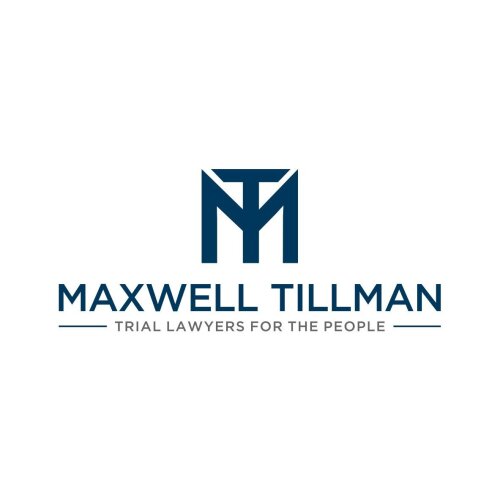Best White Collar Crime Lawyers in Alabama
Share your needs with us, get contacted by law firms.
Free. Takes 2 min.
Or refine your search by selecting a city:
List of the best lawyers in Alabama, United States
About White Collar Crime Law in Alabama, United States
White collar crime generally refers to non-violent crimes committed for financial gain by individuals, businesses, or government officials. In Alabama, these offenses frequently involve deceit, fraud, or violation of trust rather than physical violence. Examples include embezzlement, bribery, identity theft, tax evasion, securities fraud, and healthcare fraud. White collar crimes are often prosecuted at both state and federal levels due to the complexity and potential magnitude of the offenses. The impact of these crimes can be substantial, affecting individuals, businesses, and entire communities.
Why You May Need a Lawyer
The complexities of white collar crime cases make legal representation especially important. Lawyers who specialize in this field provide invaluable assistance in several situations, such as:
- When you are being investigated for alleged white collar offenses
- If you have been formally charged with a white collar crime
- When your business is accused of fraudulent activity
- If you received a subpoena to provide documents or testimony
- When you are negotiating with law enforcement or prosecutors
- If you are a victim seeking to recover losses from white collar criminal activity
An attorney can help defend your rights, build a strong defense, negotiate potential plea agreements, and help you navigate the criminal justice process. Early involvement of legal counsel is often critical to achieving the best outcome.
Local Laws Overview
Alabama's laws related to white collar crime are found in various state statutes, including the Alabama Criminal Code. Key laws include:
- Theft by Deception - Defined as knowingly obtaining property or services by misrepresentation.
- Forgery and Counterfeiting - Involves altering documents or creating fake documents with the intent to defraud.
- Bribery and Corruption - Criminalizes the offering, giving, receiving, or soliciting of anything of value as a means to influence actions.
- Identity Theft - Unlawfully acquiring and using another person’s personal information for economic benefit.
- Computer Crimes - Includes offenses involving unauthorized access to computer systems or data.
- Fraud - Encompasses various acts of intentional deception causing economic gain or loss. This includes real estate, mortgage, insurance, and credit card fraud.
Some white collar crimes in Alabama may also fall under federal laws, especially when they cross state lines or involve federal agencies. Convictions can result in severe penalties, including restitution, fines, probation, or significant prison sentences.
Frequently Asked Questions
What qualifies as a white collar crime in Alabama?
White collar crimes include non-violent, financially motivated offenses such as fraud, embezzlement, identity theft, bribery, forgery, tax evasion, and computer crimes.
Can white collar crime cases be prosecuted in federal court?
Yes, many white collar offenses, especially those involving federal laws, interstate activity, or large sums of money, can be prosecuted in federal court as well as Alabama state courts.
What penalties could I face if convicted?
Penalties vary but may include imprisonment, fines, restitution to victims, probation, community service, and permanent criminal records. Penalties are often severe due to the large sums of money or significant harm involved.
How are white collar crimes investigated in Alabama?
Investigations may be conducted by law enforcement agencies such as the Alabama Attorney General’s Office, local police, the Federal Bureau of Investigation (FBI), or the Internal Revenue Service (IRS). These investigations often involve subpoenas for documents, interviews, and forensic accounting.
Can I be held responsible for my company’s actions?
Under certain circumstances, individuals, such as business owners or executives, can be held criminally responsible for corporate actions if they had knowledge or were complicit in the illegal activity.
What should I do if I am under investigation for a white collar crime?
You should consult an experienced criminal defense lawyer immediately before answering questions or providing documents to authorities. Early legal intervention can make a significant difference in the outcome.
Is it possible to negotiate a plea bargain in white collar cases?
Yes, plea bargaining is common in white collar cases. A lawyer can negotiate with prosecutors to potentially reduce charges or sentencing in exchange for cooperation or a guilty plea.
How long do white collar crime investigations usually take?
These investigations can be lengthy due to the complexity of financial transactions and records involved, sometimes lasting months or even years before charges are filed.
Are there defenses available in white collar crime cases?
Common defenses include lack of intent, mistaken identity, entrapment, insufficient evidence, or proving the actions were not illegal. An attorney can help determine the best defense strategy based on the facts.
Will a conviction affect my professional life?
Yes, a conviction can have lasting consequences, including loss of professional licenses, damaged reputation, disqualification from certain jobs, and civil lawsuits.
Additional Resources
If you need further information or support, consider contacting these organizations and resources:
- Alabama Attorney General’s Office - Criminal Division
- Alabama State Bar Association - Lawyer Referral Service
- United States Attorney’s Office (Northern, Middle, Southern Districts of Alabama)
- Federal Bureau of Investigation (FBI) - Birmingham Division
- Consumer Protection Division - For victims of fraud or scams
- Alabama Legal Help - For basic legal information and referrals
Next Steps
If you are facing allegations or charges involving white collar crime in Alabama, acting promptly is essential. Here are steps you can take:
- Seek legal counsel from an attorney experienced in white collar criminal defense
- Avoid discussing your case with anyone except your lawyer
- Preserve all relevant documents and records
- Prepare a timeline of any relevant events to help your attorney
- Follow your attorney’s advice closely throughout the investigation or prosecution
Taking these steps can help protect your rights and provide the best chance for a positive outcome in your case.
Lawzana helps you find the best lawyers and law firms in Alabama through a curated and pre-screened list of qualified legal professionals. Our platform offers rankings and detailed profiles of attorneys and law firms, allowing you to compare based on practice areas, including White Collar Crime, experience, and client feedback.
Each profile includes a description of the firm's areas of practice, client reviews, team members and partners, year of establishment, spoken languages, office locations, contact information, social media presence, and any published articles or resources. Most firms on our platform speak English and are experienced in both local and international legal matters.
Get a quote from top-rated law firms in Alabama, United States — quickly, securely, and without unnecessary hassle.
Disclaimer:
The information provided on this page is for general informational purposes only and does not constitute legal advice. While we strive to ensure the accuracy and relevance of the content, legal information may change over time, and interpretations of the law can vary. You should always consult with a qualified legal professional for advice specific to your situation.
We disclaim all liability for actions taken or not taken based on the content of this page. If you believe any information is incorrect or outdated, please contact us, and we will review and update it where appropriate.
Browse white collar crime law firms by city in Alabama
Refine your search by selecting a city.















